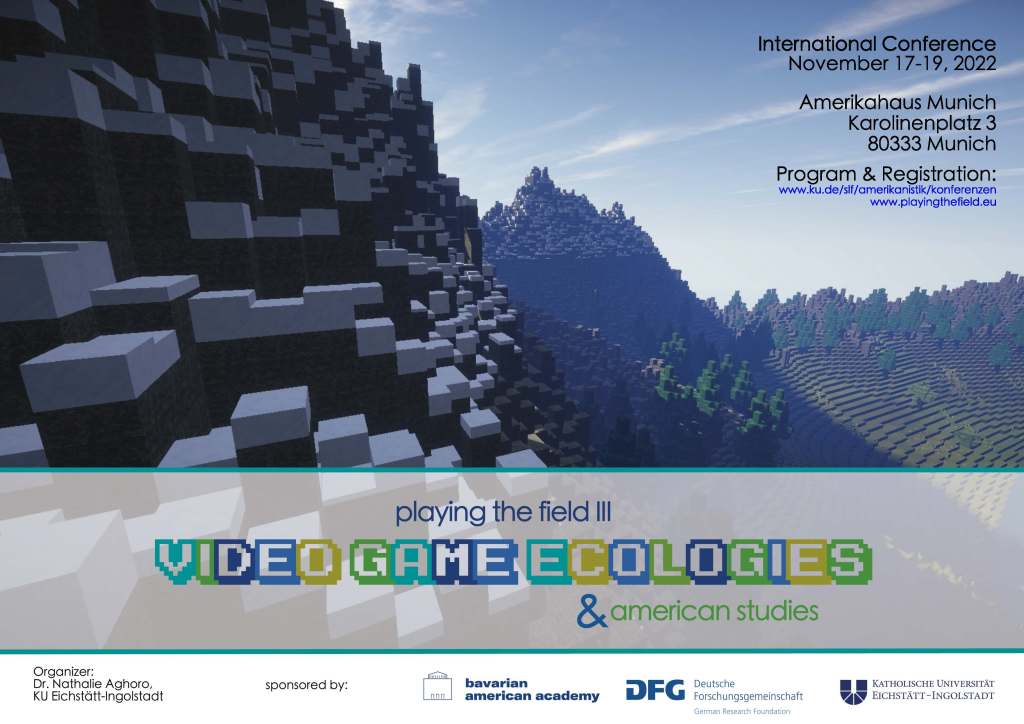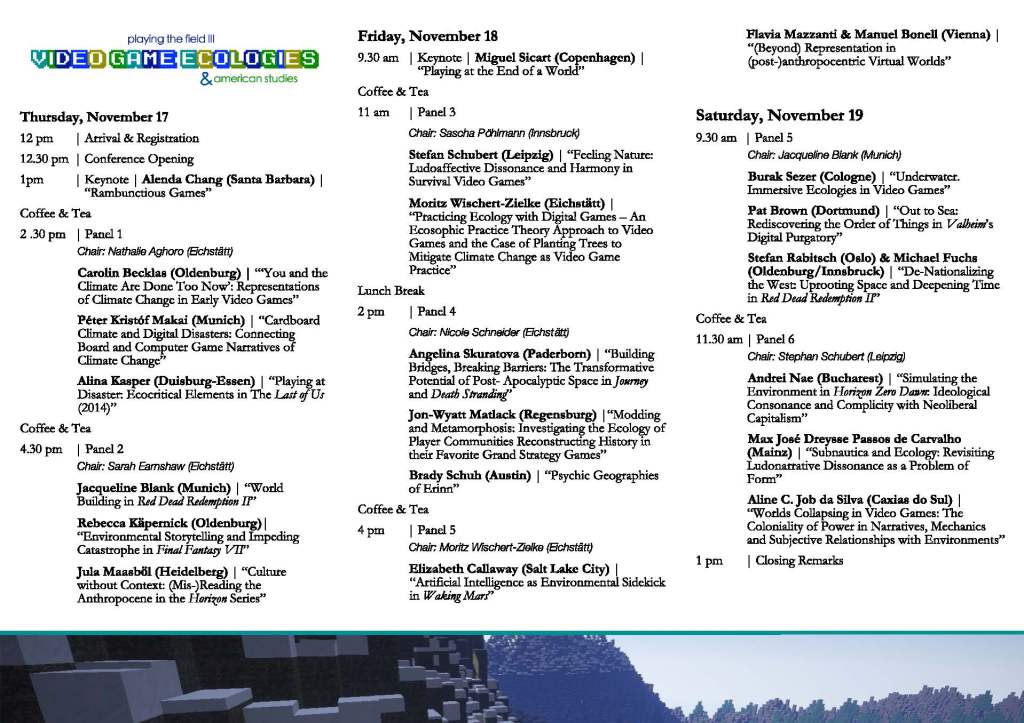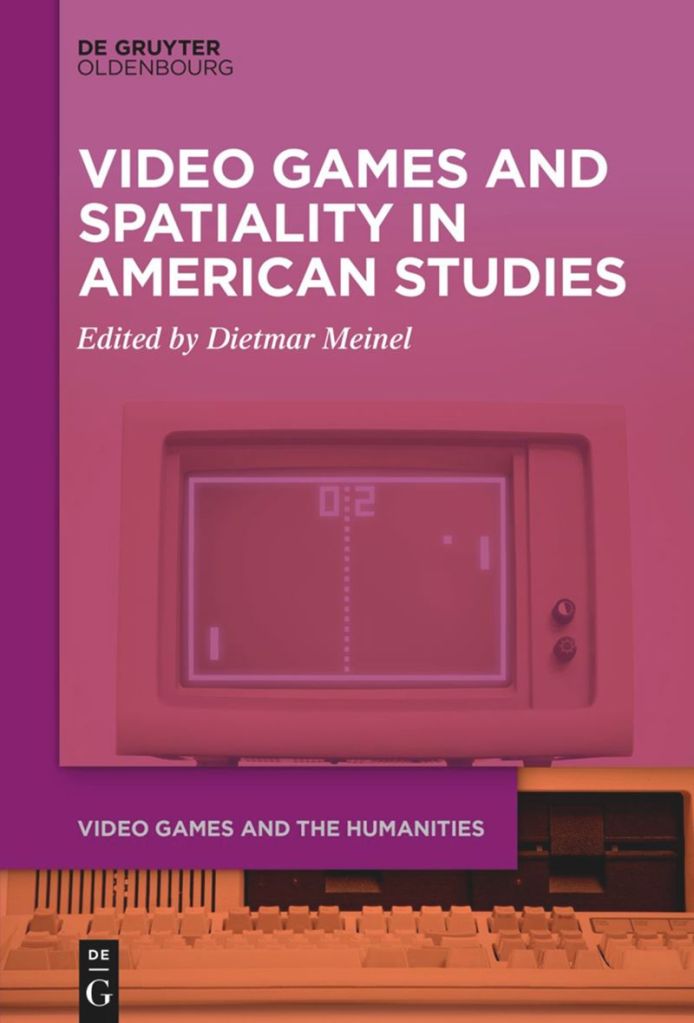“Playing the Field” is a collaborative interdisciplinary research initiative started by German American Studies scholars in 2018. Its objective is to create a welcoming and informal environment that fosters academic conversations about video games in our field and beyond. Broadly speaking, we are interested in how the theories and methods of American Studies may be fruitfully brought to bear on video games as objects of research, and how in turn video games change these theories and methods. We pursue these questions together with other international scholars, scientists, and artists from various disciplines.
To create a forum for these conversations, “Playing the Field” began its life in 2018 as an international conference, and it has now grown into a conference series that regularly brings together researchers from around the globe.
Upcoming Events

“Playing the Field III: Video Game Ecologies and American Studies”
November 17-19, 2022
Amerikahaus Munich, Germany
The conference aims at examining the environments that video games affect and are impacted by. It engages with the notion of ecology as a critical concept that not only allows to study the intermedial, social, and cultural relations that constitute video games and gaming culture. The term also suggests reflections on the impact of gaming and virtual worlds in mainstream media ecologies as well as video game conceptions of human, posthuman, and natural environments.
The theme of video game ecologies seeks to facilitate interdisciplinary conversations on the cultural, literary, political, social, and ecological discourses pertaining to the medium. As Megan Condis writes: “Each game utilizes different mechanics to describe and model the relationship between the playercharacter and his or her environment, resulting in a different argument about the type of world we inhabit—or the one we might inhabit in the future” (“Live in Your World, Play in Ours” 90). The conference serves as a platform to reflect on the structures, relations, and imaginations involved in these world building practices and the environments they participate in and create.

Recently Published
